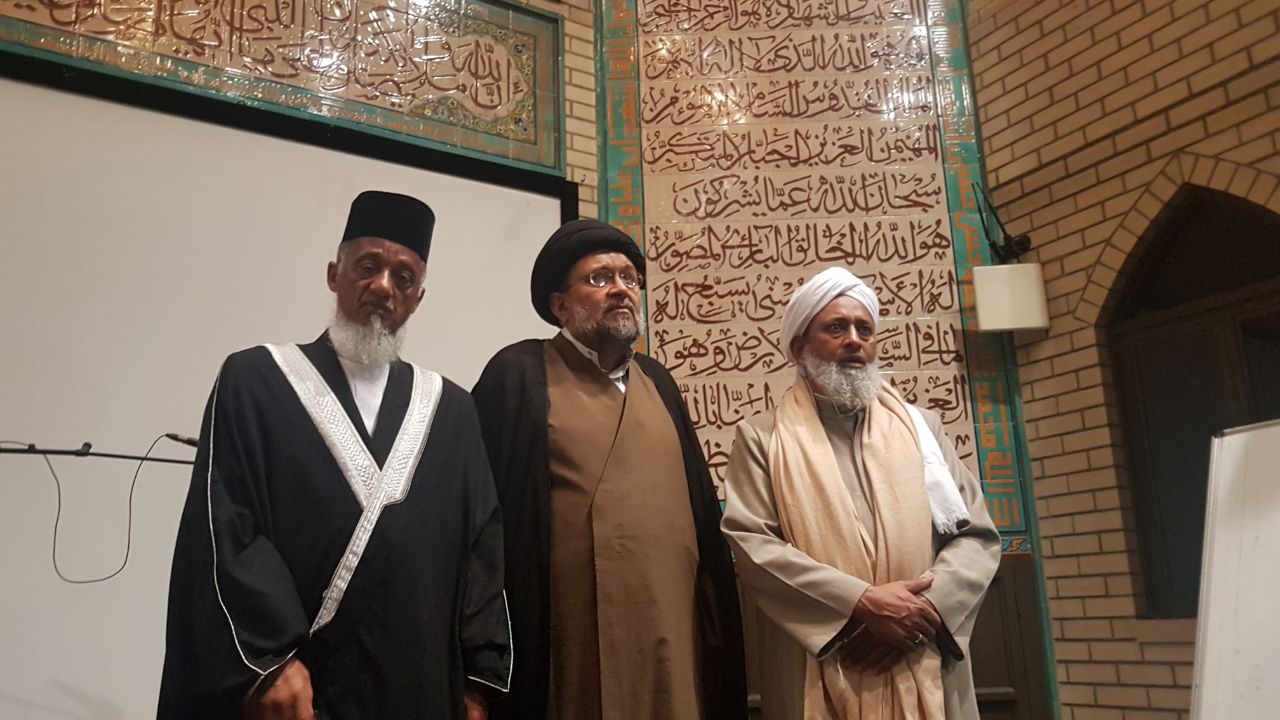As the South African Muslim community deals with the aftermath of last week’s horrific attack at the Imam Hussain masjid in Verulam in north of KwaZulu Natal, the leadership of the Muslim Judicial Council (MJC) visited the community on Monday in a show of sympathy with the Ottawa community. On Thursday, masked suspects stormed into the mosque and brutally attacked three musallees including the imam, setting alight the kitchen and library. One of the victims, Abbas Essop later died from his wounds.
MJC president Shaykh Irafaan Abrahams, and his deputy, Maulana Abdul Khaliq Ebrahim Allie, travelled to Verulam on Monday night to meet with the Shi’a leader Maulana Aftab Haider and other members of the community. In a statement, the MJC said the leadership expressed concern and condemned – in the strongest possible terms – the desecration of the Imam Hussein (AS) Masjid and the burning of the Noble Quran and Islamic literature.
“The leaders expressed the absolute necessity for tolerance and peace in all our communities, and that the incitement to violence, hate and intolerance, due to our different ideological and religious viewpoints, are unacceptable in Islam. They also felt intolerance and hate to be unacceptable within a pluralistic society like South Africa, where freedom of association and belief is guaranteed by the Constitution,” said the MJC in its press statement.
The ulema body said it is common fact that historic differences between Shi’ah and Sunni do exist within the community, and in a very matured and conciliatory discussion, the leaders acknowledged “that this should not lead to hatred and violence used by elements who seek to divide our communities along sectarian lines”.
After a productive meeting, the MJC delegation visited the home of the deceased and expressed condolences with the widow and the family.
Amid the tension in the Verulam community, the South African Muslim Network (SAMNET) will be engaging with the various role-players to understand the underlying tensions on the community. It is hoped a meeting will be arranged between Sunni and Shia religious leaders.
While all of us hope and pray that it was neither religious nor sectarian hatred that was the cause of these attacks, the possibility cannot be discounted and as a community, we need to prepare ourselves in case it was religiously motivated violence inspired by local Muslims or foreign nationals or a third force,” said SAMNET.
“Even if a third force was not responsible for this attack, the incident and the subsequent media coverage may give ideas to those who may now see an opportunity to ferment sectarian violence in South Africa within the Muslim community.”
SAMNET said the attack also highlights the need for the Muslim community to organise itself for all possibilities of violence between Muslims or againat Muslims, irrespective of the cause.
“It also highlights the need for a co-ordinated crisis management system within the Muslim community and the necessity for security cameras at Mosques. The high incidences of hijackings at mosques also makes this imperative.”
SAMNET believes crisis management needs to encompass all facets including media liaison, public relations, co-ordinated press releases, liaison and management with emergency services and law enforcement agencies and management of social media given the high rates of fake news and irresponsible postings and comments often made on social media.
SAMNET will be arranging a seminar on these important issues and will invite the Muslim public to register an interest, make input, recommend the necessary experts from Muslim and other faith groups who can assist in the areas required.
To get in touch, email Info@samnet.co.za VOC






 WhatsApp us
WhatsApp us 

